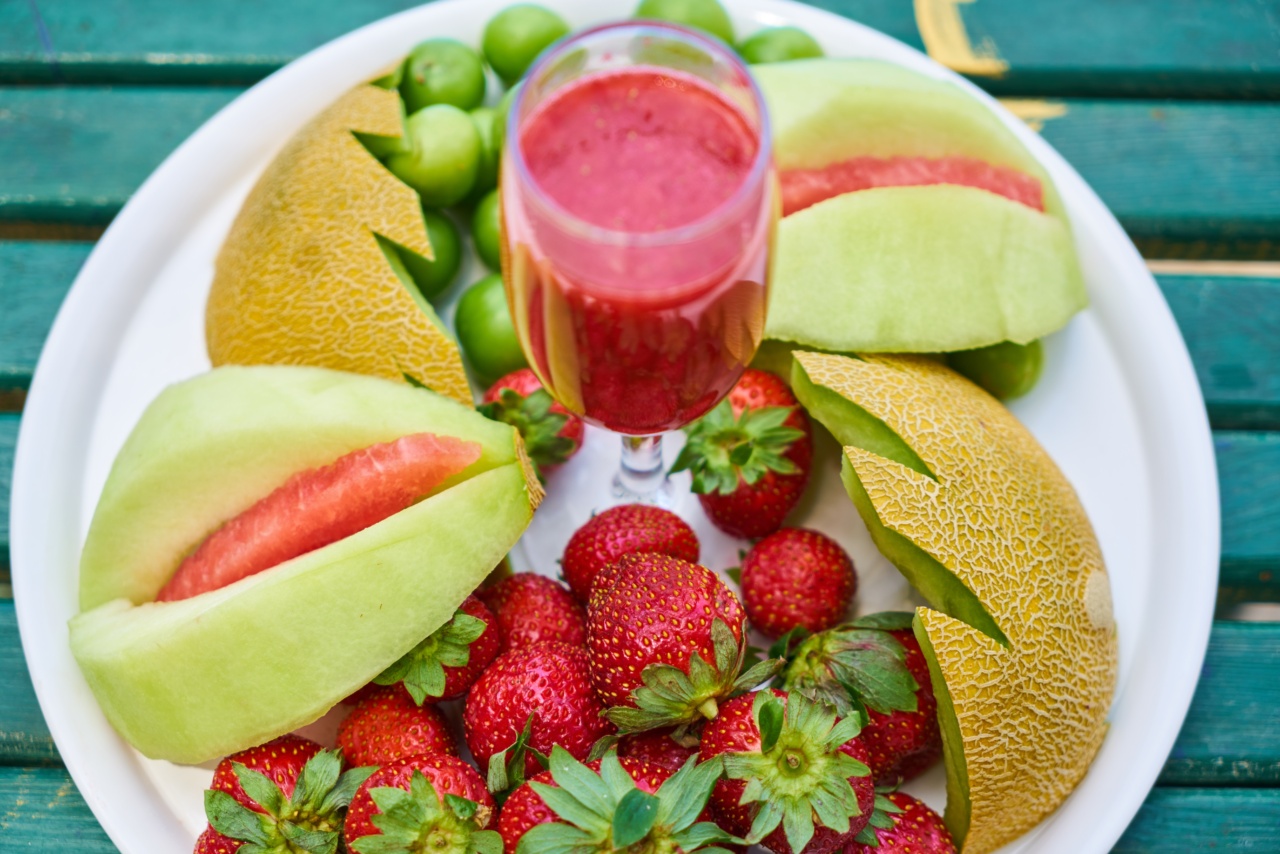Eating a diet rich in fruits has long been recommended for a healthy lifestyle. Fruits are not only deliciously refreshing but also provide numerous health benefits.
Among their many advantages, fruits have been shown to promote heart health and reduce the risk of heart disease. Incorporating five portions of fruits into your daily diet can significantly contribute to a heart-friendly lifestyle.
In this article, we will explore the benefits of a fruit-based diet and provide some helpful tips on how to incorporate more fruits into your meals.
Why are fruits good for the heart?
Fruits are naturally low in calories and high in essential nutrients, such as vitamins, minerals, and fiber. Their nutrient content makes them an excellent choice for maintaining a healthy heart. Here are some reasons why fruits are good for your heart:.
1. Antioxidant-rich
Fruits are packed with antioxidants, which help protect the heart by preventing oxidative damage. Antioxidants neutralize harmful free radicals and reduce inflammation, both of which are linked to heart disease risk.
2. High in fiber
Fiber is an important component of a heart-healthy diet. It helps lower cholesterol levels, regulate blood sugar, and promote a healthy weight. Fruits, particularly those with edible skins or seeds, are excellent sources of dietary fiber.
3. Rich in vitamins and minerals
Fruits are abundant in vitamins and minerals that play a crucial role in heart health. Vitamin C, for example, strengthens blood vessels and supports healthy blood flow.
Potassium, another essential nutrient found in fruits, helps regulate blood pressure.
4. Natural source of heart-protective compounds
Many fruits contain compounds that have been shown to have a positive impact on heart health.
For instance, berries are known for their high levels of flavonoids, which have antioxidant and anti-inflammatory effects that can help reduce the risk of heart disease.
Tips to incorporate more fruits into your diet
Now that you understand the heart benefits of incorporating fruits into your diet, here are some tips to help you increase your fruit consumption:.
1. Start with a fruit-packed breakfast
Begin your day by including fruits in your breakfast routine. Add sliced bananas or berries to your cereal or oatmeal. You can also blend fruits into a delicious smoothie or enjoy a piece of fresh fruit on the side.
2. Snack on fruits
Keep a variety of fruits, such as apples, oranges, and grapes, readily available for snacking. Whenever you feel hunger striking between meals, reach out for a nutritious piece of fruit instead of reaching for processed snacks.
3. Create fruit-based desserts
Instead of indulging in sugary desserts, satisfy your sweet tooth with fruit-based alternatives. Bake apples or pears with a sprinkle of cinnamon or enjoy a refreshing fruit salad with a dollop of Greek yogurt.
4. Incorporate fruits into savory dishes
Fruits can add a delightful tangy twist to savory dishes. Experiment with fruit salsas by combining diced fruits like mango, pineapple, or peach with jalapeños, red onions, and lime juice.
Serve these salsas on top of grilled chicken or fish for a burst of flavor.
5. DIY fruit popsicles
During hot summer months, beat the heat with homemade fruit popsicles. Blend your favorite fruits, such as watermelon or berries, with a touch of honey or natural sweetener.
Pour the mixture into popsicle molds and freeze until solid for a delicious and guilt-free treat.
The five-portions-a-day approach
The World Health Organization recommends consuming at least five portions or servings of fruits and vegetables daily.
While this target applies to both fruits and vegetables, focusing on fruits can make it easier to incorporate more plant-based foods into your diet. Here’s what a five-portion fruit-based diet may look like:.
1. Breakfast:
Start your day with a bowl of mixed berries topped with a spoonful of Greek yogurt and a sprinkle of granola.
2. Morning snack:
Enjoy a crunchy apple or a handful of grapes.
3. Lunch:
Prepare a colorful salad with a mix of leafy greens, cherry tomatoes, sliced cucumber, and diced mango. Drizzle with a light citrus dressing.
4. Afternoon snack:
Slice up a ripe peach or enjoy a small bowl of mixed fruit salad.
5. Dinner:
Grill a piece of salmon and serve it with a side of roasted sweet potatoes and steamed broccoli. Finish the meal with a small bowl of fresh pineapple chunks.
Conclusion
A heart-friendly fruit diet that includes five portions of fruits a day can have a significant impact on your heart health. Fruits provide essential nutrients, fiber, and antioxidants that help lower the risk of heart disease.
By incorporating fruits into various meals and snacks, you can make your diet more diverse, exciting, and beneficial for your heart.




























